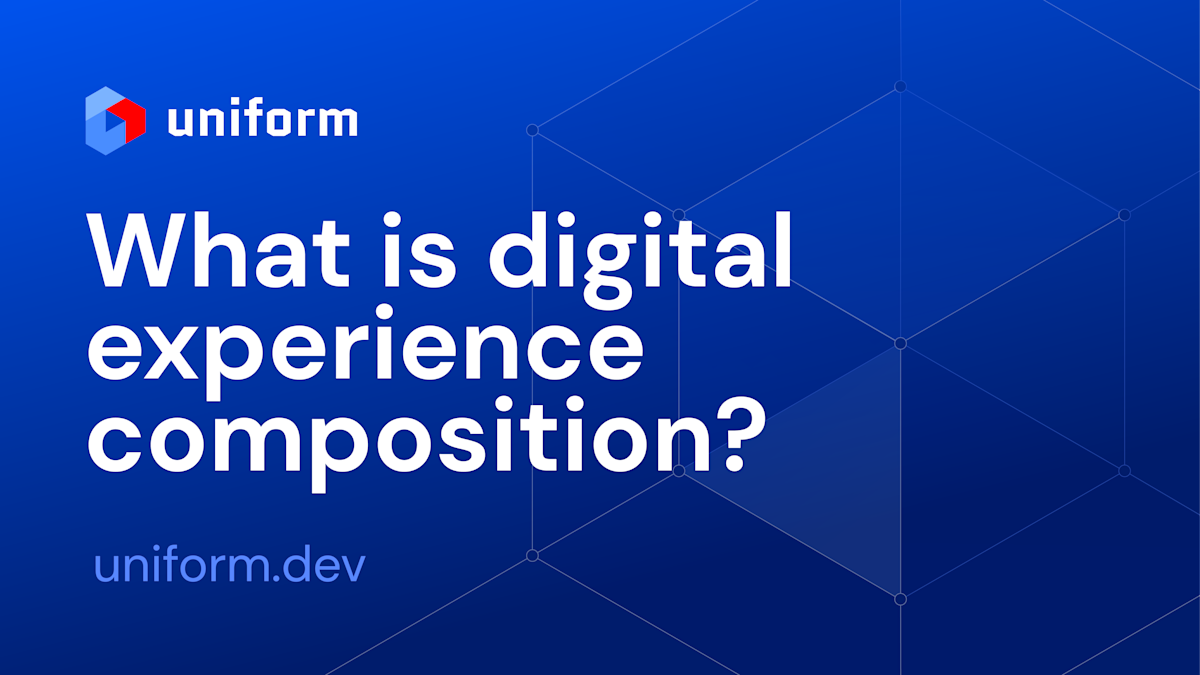What is Digital Experience Composition (DXC)?
Digital Experience Composition (DXC) is a relatively new term and concept in the field of digital design and development. What does it mean?

Digital Experience Composition (DXC) is a design and development approach that focuses on creating seamless, personalized, and engaging digital experiences for users.
The goal of DXC is to provide a consistent and cohesive experience across all touchpoints and channels, such as:
- web
- mobile
- social media
- in-person interactions
DXC is based on the idea that digital experiences are made up of individual components, such as text, images, videos, and interactive elements, that can be composed and assembled in different ways to create a wide range of experiences. By breaking down digital experiences into smaller, reusable components, teams can create and test new experiences more efficiently, improve the overall quality of their digital products, and increase the speed of delivery.
DXC also emphasizes the importance of data-driven design and personalization. By analysing user data and behaviour, teams can create tailored experiences that are tailored to the specific needs and preferences of different user groups. This can help to increase engagement, conversion rates, and overall satisfaction with the digital experience.
Overall, DXC is a holistic approach to digital design and development that takes into account the entire customer journey and considers all touchpoints, to create a seamless and personalized experience.

Problems a DXC solves
Some of the key problems that DXC aims to address include:
- Siloed teams: In many organizations, different teams are responsible for different aspects of the digital experience, such as web development, marketing, and content creation. These teams often work in silos and have different tools and processes, which can make it difficult to create a consistent and cohesive experience across all touchpoints and channels.
- Slow development: Creating new digital experiences can be time-consuming and resource-intensive, as teams need to design, develop, and test each individual component. By breaking down digital experiences into smaller, reusable components, DXC allows teams to create and test new experiences more efficiently, and increase the speed of delivery.
- Lack of personalization: Many digital experiences are generic and fail to take into account the specific needs and preferences of different user groups. By using data-driven design and personalization, DXC allows teams to create tailored experiences that are more likely to engage and convert users.
- Difficulty in maintaining a digital experience: Keeping the digital experience up-to-date and consistent across all channels can be a challenging task. A DXC platform allows teams to create, manage and publish different version of the digital experience, in an efficient and consistent way.
The DXC aims to solve these problems by providing a holistic approach to digital design and development that takes into account the entire, omnichannel customer journey, breaking the digital experience into smaller components, and creating a seamless, personalized and engaging experience across all touchpoints.
Is a DXC not the same as a CMS?
Digital Experience Composition (DXC) and a Content Management System (CMS) are related, but they serve different purposes.
A CMS is a software system that allows users to create, manage, and publish digital content, such as text, images, and videos. It provides an interface for creating and editing content, as well as tools for managing and organizing it. A CMS is typically used to power websites and other digital platforms, such as intranets, online stores, and digital publications.
DXC, on the other hand, is more focused on the design and development of the overall digital experience. Rather than just managing and publishing content, it's about creating personalized and engaging experiences for users, by assembling and composing different components like text, images, videos, and interactive elements. A DXC system would use a CMS as one of the building block, providing the back-end where the content is created, stored, managed and published.




